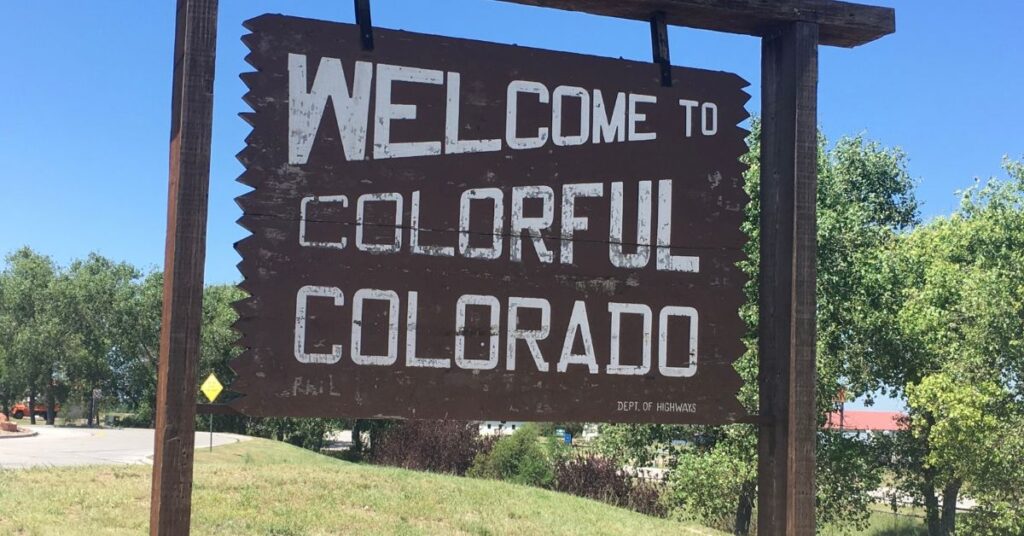By Jeffrey A. Roberts
CFOIC Executive Director
Three years ago, the Colorado Freedom of Information Coalition published a “wish list” of recommendations for better open government laws in Colorado. Part of CFOIC’s job, we noted, is to call attention to systemic roadblocks that make it harder for journalists and the public at large to get information from state and local government entities as well as the courts.
In that 2020 article, we pointed out some improvements over the previous few years, including successful bills that opened police internal affairs files, clarified the public’s right to copies of digital public records in useful file formats and established requirements for disclosing footage from body-worn cameras.
But there was more to be done, in our humble opinion, and now that wish list is longer.
The General Assembly in its 2023 session did address a few nagging obstacles in the Colorado Open Records Act by 1) eliminating per-page fees for records provided in digital formats such as PDFs; 2) requiring records custodians to transmit digital records by email “or by another mutually-agreed-upon transmission method” for bigger files; 3) letting CORA requesters pay with credit cards; and 4) outlawing identification requirements for CORA requesters except for confidential records.

Lawmakers did not, however, tackle the No. 1 barrier to obtaining public records in Colorado — exorbitant fees. And that problem will only get worse on July 1, 2024, when inflation boosts the maximum-allowable hourly rate to process CORA requests from $33.58 to a whopping $40 or $41. Multiply that greater rate by five, 10 or 20 hours and the often-high cost of obtaining public records in Colorado gets even more unaffordable.
There’s got to be a better formula that doesn’t make some public records effectively off-limits to the public. So far, we haven’t heard about any legislators interested in taking on the CORA research-and-retrieval fee issue in the 2024 session, despite the imminent 23 percent rate hike. CFOIC and the Colorado Press Association tried to get fee reform included in the 2023 CORA bill but that never materialized.
Here are other ways to make some small and not-so-small improvements to Colorado’s open government laws:
Expand credit card payments. Let the public pay for law enforcement records with credit cards and electronic payments (rather than having to write a check) if agencies already accept such payments for other services or products. The credit card provision in Senate Bill 23-286 only applies to CORA records, not those of law enforcement or the courts.
Expand the ban on ID requirements. The prohibition against ID requirements in SB 23-286 applies only to CORA records, as well, letting law enforcement agencies continue to make requesters show a driver’s license to obtain records under the Colorado Criminal Justice Records Act. Although CCJRA requires requesters to sign a statement affirming they will not use criminal justice records “for the direct solicitation of business or pecuniary gain,” it says nothing about showing ID and allows “any person” to inspect public records. Even so, requiring ID is a common practice among police agencies and at least one demands notarized request forms to obtain documents.
During testimony on the 2023 CORA bill, 9NEWS reporter Jeremy Jojola recalled the time a police department mistakenly gave a copy of his driver’s license information to an outside third party, “which was very unsettling for me.”
Prohibit disappearing messaging apps for official business. A consent decree in a 2023 lawsuit bars members of the Colorado House from setting their devices to auto-delete messages exchanged with other representatives, but it doesn’t affect state senators or any other public officials in Colorado. In a July 2023 report, CFOIC examined the implications of public officials using Signal, Confide and other ephemeral messaging apps for CORA, the Colorado Open Meetings Law and records-retention laws and policies.
“Open government laws are intended to ensure an informed citizenry, but it is impossible to achieve that purpose when public officials evade disclosure requirements by the use of encrypted and disappearing messaging apps,” the report says.
Require recording of public meetings. An open meetings law provision on the electronic recording of open public body meetings, added in 2001, is opaque and subject to interpretation. It says a public body must “continue to electronically record the minutes of its open meetings” if it started doing so on or after Aug. 8, 2001. Some public bodies take that to mean they don’t have to make audio or video recordings of meetings for which minutes aren’t required — where there is no adoption of policy or formal action — and make them available for CORA requests. Governments ideally should livestream and post recordings of council, commission and board meetings, but some still do not.
Require posting of meeting packets online. Many public bodies post on their websites documents that will be distributed or discussed during upcoming public meetings, but some do not, and the open meetings law does not require it. An unsuccessful 2023 bill aimed at improving access to government for people with disabilities would have required the posting of meeting documents “as soon as practicable before the public meeting.”
Close a loophole in the IA records law. The 2019 law requiring disclosure of records on completed internal affairs investigations only pertains to investigations that examine “the in-uniform or on-duty conduct of a peace officer … related to an incident of alleged misconduct involving a member of the public.” If an IA investigation concerned some other type of misconduct, such as domestic violence, an agency can withhold the records under CCJRA by claiming disclosure would be “contrary to the public interest.” Because of IA records denials, the Colorado News Collaborative (COLab) was unable to find out why several law enforcement officers resigned or retired while under investigation for an October 2023 series on police transparency and accountability.
Fix the POST database. The COLab series also uncovered numerous problems with an online searchable database of problem officers published by the Peace Officer Standards and Training board. For one, it reveals no pre-2022 records other than decertifications, effectively keeping “the vast majority of prior misconduct cases — and information showing which officers have engaged in serial misconduct — shrouded in secrecy.” And for those officers who show up in the data as having had disciplinary or untruthfulness issues, it is challenging to find out the circumstances of the allegations against them. The database lists dozens of officers who were “terminated for cause,” but it doesn’t mention the cause. Nor does it tell you why some officers resigned while under investigation or “in lieu of termination.” Many officers listed as “CERTIFIED” actually have lost POST certification.
Clarify the body-cam law. Since 2021, the Law Enforcement Integrity Act has set a timetable for the public release of body-worn camera footage of incidents “in which there is a complaint of peace officer misconduct.” But CFOIC found that for three recent officer-involved shootings, reporters were denied body-cam footage because there had been no official “complaint.” The footage instead was withheld as “contrary to the public interest” like any other record subject to CCJRA.
State law requires law enforcement agencies to have protocols for investigating incidents in which an officer shoots and injures or kills someone. Such investigations should automatically serve as the complaints of “peace officer misconduct” required to activate the body-cam footage statute, said Rachael Johnson, a Colorado-based attorney for the Reporters Committee for Freedom of the Press who has represented journalists regarding requests for body-cam video.
Our final three recommendations are left over from CFOIC’s 2020 wish list:
Set a response deadline for criminal justice records requests. Unlike CORA, CCJRA has no response-time requirement, except for basic arrest reports and a few other “records of official action.” Journalists and law firms sometimes wait months for criminal justice records.
Clarify the cost of obtaining criminal justice records. CCJRA is vague about what agencies may charge records requesters, allowing them to “assess reasonable fees, not to exceed actual costs.” Requesters often can’t tell whether charges indeed reflect “actual costs.”
Award attorney fees to successful CCJRA litigants. If you win a CORA lawsuit, the law says you “shall” be awarded court costs and reasonable attorney fees. But there is no such guarantee in the criminal justice records law. Under CCJRA, a court “may” order the records custodian to pay a prevailing applicant’s court costs and attorney fees and only upon a finding that “the denial was arbitrary and capricious.”
A CCJRA requester prevails only if (1) the custodian declines a request within the clearly defined categories of “official action records,” or (2) the custodian commits an “abuse of discretion” (a difficult legal standard to meet) in denying access to other criminal justice records. “There is no legitimate policy reason for giving criminal justice agencies a pass while providing all other official records custodians an appropriate incentive to comply with the law or be subject to shifting of the burden caused by a prevailing citizen who proves a dereliction of that duty,” said CFOIC board member and past president Tom Kelley, an attorney who uses CCJRA to investigate cases of apparent excessive use of force by police.
Follow the Colorado Freedom of Information Coalition on Twitter @CoFOIC. Like CFOIC’s Facebook page. Do you appreciate the information and resources provided by CFOIC? Please consider making a tax-deductible donation.




